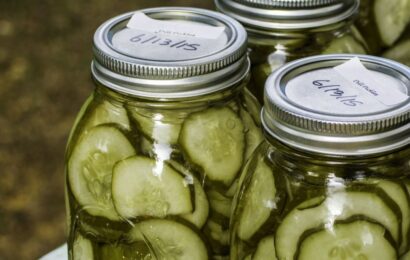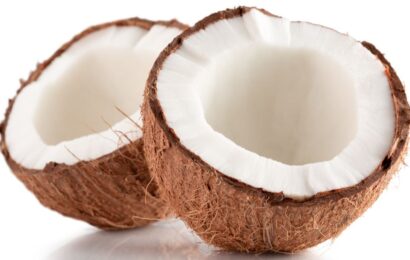People who have diabetes are twice as likely to have heart disease or a stroke as people without diabetes. One of the risk factors for heart disease is a high LDL (“bad”) cholesterol level. To treat high cholesterol and lower the risk of getting heart disease, your health care provider may recommend that you take a statin, which is a prescription medicine that can lower the level of LDL cholesterol in the blood. In fact, the American Diabetes Association, the American Heart Association, and the American College of Cardiology recommend that adults with type 2 diabetes ages 40 to 75 should take a statin to prevent heart disease.
However, some people do not want to take a statin or report side effects from taking one. Other people prefer to take something that is more “natural” to lower their cholesterol. Red yeast rice is a dietary supplement that some people take in place of a statin to lower their cholesterol. What is red yeast rice? And is it safe to take?
To get cutting-edge diabetes news, strategies for blood glucose management, nutrition tips, healthy recipes, and more delivered straight to your inbox, sign up for our free newsletters!
What is red yeast rice?
Red yeast rice (RYR) is a dietary supplement that is marketed in the U.S. to help lower cholesterol levels. RYR has been used in China for centuries, both for food and for medicine. It’s made by fermenting rice with a type of yeast called Monascus purpureus. The rice then turns red after fermentation. It can be sold as a dry grain, or cooked, or dried and pulverized into a fine powder. In cooking, RYR is used to color pickled tofu, red rice vinegar, Peking duck, and Chinese pastries. Traditionally, RYR is used in making a Chinese wine called huangjiu and Japanese sake.
How might red yeast rice lower cholesterol?
“Some red yeast rice products contain substances called monacolins, which are produced by the yeast,” says the National Center for Complementary and Integrative Health (NCCIH). Monacolin K is a chemical found in RYR that is identical to the active ingredient found in the drug lovastatin, a prescription medication used to lower cholesterol. Statins lower cholesterol by reducing the production of cholesterol by the liver. In addition to monacolin K, RYR contains other substances that may help lower cholesterol, including unsaturated fatty acids, isoflavones, and phytosterols; however, researchers are not entirely sure if RYR lowers cholesterol because of the monacolin K or because of other ingredients in the RYR.
Does red yeast rice actually lower cholesterol?
Several studies indicate that RYR does lower cholesterol. But many of these studies have used a form of RYR that is not available in the U.S. anymore. One study, published in the journal Circulation in 2013, looked at 116 patients in the U.S. and in China. Patients were randomized to one of three groups (1200 mg/day of RYR, 2400 mg/day of RYR, or placebo [inactive treatment]). After 12 weeks, the two groups given the RYR product had LDL levels 26.8% lower and 27% lower, respectively, and the placebo group showed a 0.8% increase in LDL cholesterol.
Another study published in the June 15, 2008 edition of the American Journal of Cardiology used a purified extract of RYR called XZK. Conducted in China, it included almost 5,000 patients with coronary artery disease who had had a heart attack in the previous year. The patients were given two 300-milligram XZK capsules or a placebo and followed over a five-year period. The XZK supplement reduced the risk of repeat heart attacks by 45%, and reduced the need for bypass surgery or angioplasty and death from heart disease by about one-third.
Is red yeast rice safe?
Some RYR products contain little or no monacolin K. But because some RYR products do contain monacolin K, the U.S. FDA (Food and Drug Administration) in 1998 determined that RYR products containing more than trace amounts of monacolin K were considered to be “unapproved” drugs, not dietary supplements (the FDA does not regulate dietary supplements). And since then, the FDA has continued to take action against companies selling supplements with more than trace amounts of monacolin K.
The concern, per the FDA, is that these products could potentially cause severe muscle problems that, in turn, could cause kidney disease. Higher-than-normal liver function test results may also occur. Other possible side effects from RYR include:
- Stomach discomfort
- Heartburn
- Gas
- Headache
- Dizziness
- Muscle aches and weakness
Also, RYR may interact with some medications and other products, possibly raising the risk of liver damage or myopathy (muscle disease):
- Alcohol
- Grapefruit
- Cyclosporine
- Gemfibrozil
- Niacin
- St. John’s Wort
- Statins
Should you take red yeast rice?
You might be tempted to ditch the statin in favor of taking a RYR supplement. But before you do that, it’s important to understand that doing so means that you could end up taking an unknown amount of a substance (or substances), since monacolin K amounts are not required to be listed on the packaging.
The NCCIH has recommendations if you are curious about or considering taking RYR:
- Do not use red yeast rice to replace conventional care or to postpone seeing your health care provider about a health problem.
- Do not use red yeast rice dietary supplements if you are pregnant, trying to become pregnant, or nursing a child. If you are considering giving a child a red yeast rice dietary supplement, it is especially important to consult the child’s health care provider first.
- Do not take red yeast rice in addition to prescription statin drugs.
- Many websites, including sales sites, have information about red yeast rice. Be cautious when you evaluate information from the web; not all of it is trustworthy. For more information, see the NCCIH fact sheet Finding and Evaluating Online Resources.
- Federal regulations for dietary supplements are very different from — and less strict than — those for drugs. For more information about dietary supplements, see NCCIH’s fact sheet Using Dietary Supplements Wisely.
- Tell all your health care providers about any complementary health approaches you use. Give them a full picture of what you do to manage your health. This will help ensure coordinated and safe care.
If you are concerned about taking a statin, talk with your health care provider. If cost is a concern, ask about generic statins. If you are worried about side effects from a statin, ask about other, safe ways to lower your cholesterol. These can include other types of medication, other types of supplements, and lifestyle measures.
Want to learn more about diabetes and supplements? Read “Can Diabetics Take Turmeric Supplements?,” “Can People With Diabetes Take Berberine?,” “Can People With Diabetes Use Apple Cider Vinegar?,” and “Herbs for Diabetes.”





